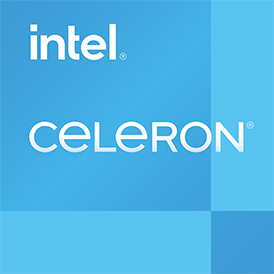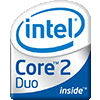
Intel Celeron G1620 Benchmark, Test and specs
Last updated:
The Intel Celeron G1620 has 2 cores with 2 threads and is based on the 3. gen of the Intel Celeron series. The processor uses a mainboard with the LGA 1155 socket and was released in Q1/2013. The Intel Celeron G1620 scores 536 points in the Geekbench 5 single-core benchmark. In the Geekbench 5 multi-core benchmark, the result is 1,065 points.

| Name: | Intel Celeron G1620 |
|---|---|
| Family: | Intel Celeron (165) |
| CPU group: | Intel Celeron G1000 (12) |
| Architecture: | Ivy Bridge S |
| Segment: | Desktop / Server |
| Generation: | 3 |
| Predecessor: | -- |
| Successor: | -- |
CPU Cores and Base Frequency
The Intel Celeron G1620 has 2 CPU cores and can calculate 2 threads in parallel. The clock frequency of the Intel Celeron G1620 is 2.70 GHz. The number of CPU cores greatly affects the speed of the processor and is an important performance indicator.
| CPU Cores / Threads: | 2 / 2 |
|---|---|
| Core architecture: | normal |
| Cores: | 2x |
| Hyperthreading / SMT: | No |
|---|---|
| Overclocking: | No |
| Frequency: | 2.70 GHz |
| Turbo Frequency (1 Core): | -- |
| Turbo Frequency (2 Cores): | -- |
Internal Graphics
The Intel Celeron G1620 has integrated graphics, called iGPU for short. Specifically, the Intel Celeron G1620 uses the Intel HD Graphics (Ivy Bridge GT1), which has 48 texture shaders and 6 execution units. The iGPU uses the system's main memory as graphics memory and sits on the processor's die.
| GPU name: | Intel HD Graphics (Ivy Bridge GT1) |
|---|---|
| GPU frequency: | 0.65 GHz |
| GPU (Turbo): | 1.05 GHz |
| Compute units: | 6 |
| Shader: | 48 |
| Hardware Raytracing: | No |
| Release date: | Q4/2012 |
| Max. displays: | 3 |
|---|---|
| Generation: | 7 |
| Direct X: | 11.0 |
| Technology: | 22 nm |
| Max. GPU Memory: | 2 GB |
| Frame Generation: | No |
Hardware codec support
A photo or video codec that is accelerated in hardware can greatly accelerate the working speed of a processor and extend the battery life of notebooks or smartphones when playing videos.
| h265 / HEVC (8 bit): | No |
|---|---|
| h265 / HEVC (10 bit): | No |
| h264: | Decode / Encode |
| VP8: | No |
| VP9: | No |
| AV1: | No |
|---|---|
| AVC: | Decode / Encode |
| VC-1: | Decode |
| JPEG: | Decode |
Memory & PCIeThe processor can use up to 32 GB memory in 2 (Dual Channel) memory channels. The maximum memory bandwidth is 21.3 GB/s. The memory type as well as the amount of memory can greatly affect the speed of the system. |
|
| Memory type: | Memory bandwidth: |
|---|---|
| DDR3-1333 | 21.3 GB/s |
| Max. Memory: | 32 GB |
| Memory channels: | 2 (Dual Channel) |
| ECC: | Yes |
| PCIe: | 2.0 x 16 |
| PCIe Bandwidth: | 8.0 GB/s |
Thermal ManagementThe thermal design power (TDP for short) of the processor is 55 W. The TDP specifies the necessary cooling solution that is required to cool the processor sufficiently. The TDP usually gives a rough idea of the actual power consumption of the CPU. |
|
|---|---|
| TDP (PL1 / PBP): | 55 W |
| TDP (PL2): | -- |
| TDP up: | -- |
| TDP down: | -- |
| Tjunction max.: | -- |
Technical details
The Intel Celeron G1620 is made in 22 nm. The smaller the manufacturing process of a CPU, the more modern and energy-efficient it is. Overall, the processor has 2.00 MB cache. A large cache can greatly speed up the processor's speed in some cases such as games.
| Technology: | 22 nm |
|---|---|
| Chip design: | Monolithic |
| Socket: | LGA 1155 |
| L2-Cache: | -- |
| L3-Cache: | 2.00 MB |
| AES-NI: | Yes |
| Operating systems: | Windows 10, Linux |
| Virtualization: | VT-x, VT-x EPT, VT-d |
|---|---|
| Instruction set (ISA): | x86-64 (64 bit) |
| ISA extensions: | SSE4.1, SSE4.2 |
| Release date: | Q1/2013 |
| Release price: | 41 $ |
| Part Number: | -- |
| Documents: | Technical data sheet |
Rate this processor
Benchmark results

The benchmark results for the Intel Celeron G1620 have been carefully checked by us. We only publish benchmark results that have been created by us or that have been submitted by a visitor and then checked by a team member. All results are based on and fullfill our benchmark guidelines.
Geekbench 5, 64bit (Single-Core)
Geekbench 5 is a cross plattform benchmark that heavily uses the systems memory. A fast memory will push the result a lot. The single-core test only uses one CPU core, the amount of cores or hyperthreading ability doesn't count.

|
AMD FX-9830P
4C 4T @ 3.70 GHz |
||

|
AMD A8-6600K
4C 4T @ 4.20 GHz |
||

|
Intel Core i7-940
4C 8T @ 3.20 GHz |
||
|
|
Intel Celeron G1620
2C 2T @ 2.70 GHz |
||

|
Intel Core i3-3130M
2C 4T @ 2.60 GHz |
||

|
Intel Core i3-3240T
2C 4T @ 2.90 GHz |
||

|
Intel Core i7-2617M
2C 4T @ 2.60 GHz |
||
Geekbench 5, 64bit (Multi-Core)
Geekbench 5 is a cross plattform benchmark that heavily uses the systems memory. A fast memory will push the result a lot. The multi-core test involves all CPU cores and taks a big advantage of hyperthreading.

|
AMD Athlon II X4 605e
4C 4T @ 2.30 GHz |
||

|
Intel Celeron G1820
2C 2T @ 2.70 GHz |
||

|
AMD Athlon II X3 455
3C 3T @ 3.30 GHz |
||
|
|
Intel Celeron G1620
2C 2T @ 2.70 GHz |
||

|
Intel Celeron 4305UE
2C 2T @ 2.00 GHz |
||

|
Intel Core i3-530
2C 4T @ 2.93 GHz |
||

|
AMD A10-8700P
4C 4T @ 3.20 GHz |
||
Geekbench 6 (Single-Core)
Geekbench 6 is a benchmark for modern computers, notebooks and smartphones. What is new is an optimized utilization of newer CPU architectures, e.g. based on the big.LITTLE concept and combining CPU cores of different sizes. The single-core benchmark only evaluates the performance of the fastest CPU core, the number of CPU cores in a processor is irrelevant here.

|
Intel Celeron 3955U
2C 2T @ 2.00 GHz |
||

|
Intel Pentium 4405U
2C 4T @ 2.10 GHz |
||

|
Intel Core i5-3337U
2C 4T @ 2.70 GHz |
||
|
|
Intel Celeron G1620
2C 2T @ 2.70 GHz |
||

|
Intel Core i3-3120M
2C 4T @ 2.50 GHz |
||

|
Intel Core i3-4010Y
2C 4T @ 1.30 GHz |
||

|
Intel Pentium Silver J5040
4C 4T @ 3.20 GHz |
||
Geekbench 6 (Multi-Core)
Geekbench 6 is a benchmark for modern computers, notebooks and smartphones. What is new is an optimized utilization of newer CPU architectures, e.g. based on the big.LITTLE concept and combining CPU cores of different sizes. The multi-core benchmark evaluates the performance of all of the processor's CPU cores. Virtual thread improvements such as AMD SMT or Intel's Hyper-Threading have a positive impact on the benchmark result.

|
Intel Core i3-2330E
2C 4T @ 2.20 GHz |
||

|
Intel Core i3-2330M
2C 4T @ 2.20 GHz |
||

|
AMD Opteron X3216
2C 2T @ 1.60 GHz |
||
|
|
Intel Celeron G1620
2C 2T @ 2.70 GHz |
||

|
Intel Pentium 2030M
2C 2T @ 2.50 GHz |
||

|
Qualcomm Snapdragon 821
4C 4T @ 2.40 GHz |
||

|
Qualcomm Snapdragon 820
4C 4T @ 2.15 GHz |
||
iGPU - FP32 Performance (Single-precision GFLOPS)
The theoretical computing performance of the internal graphics unit of the processor with simple accuracy (32 bit) in GFLOPS. GFLOPS indicates how many billion floating point operations the iGPU can perform per second.

|
Intel Celeron G1610
Intel HD Graphics (Ivy Bridge GT1) @ 1.05 GHz |
||

|
Intel Pentium G2010
Intel HD Graphics (Ivy Bridge GT1) @ 1.05 GHz |
||

|
Intel Pentium G2020
Intel HD Graphics (Ivy Bridge GT1) @ 1.05 GHz |
||
|
|
Intel Celeron G1620
Intel HD Graphics (Ivy Bridge GT1) @ 1.05 GHz |
||

|
MediaTek Helio P70
ARM Mali-G72 MP3 @ 0.90 GHz |
||

|
UNISOC T616
ARM Mali-G57 MP1 @ 0.75 GHz |
||

|
Intel Pentium 2117U
Intel HD Graphics (Ivy Bridge GT1) @ 1.00 GHz |
||
Estimated results for PassMark CPU Mark
Some of the CPUs listed below have been benchmarked by CPU-monkey. However the majority of CPUs have not been tested and the results have been estimated by a CPU-monkey’s secret proprietary formula. As such they do not accurately reflect the actual Passmark CPU mark values and are not endorsed by PassMark Software Pty Ltd.

|
Intel Core i5-4200Y
2C 4T @ 1.90 GHz |
||

|
AMD Athlon II X3 420e
3C 3T @ 2.60 GHz |
||

|
Intel Pentium 3560M
2C 2T @ 2.40 GHz |
||
|
|
Intel Celeron G1620
2C 2T @ 2.70 GHz |
||

|
AMD A4-9120C
2C 2T @ 2.00 GHz |
||

|
MediaTek Helio P23
8C 8T @ 2.50 GHz |
||

|
AMD A6-6420K
2C 2T @ 4.20 GHz |
||
CPU-Z Benchmark 17 (Multi-Core)
The CPU-Z benchmark measures a processor's performance by measuring the time it takes the system to complete all benchmark calculations. The faster the benchmark is completed, the higher the score.

|
Intel Pentium G2010
2C 2T @ 2.80 GHz |
||

|
Intel Core i3-2350M
2C 4T @ 2.30 GHz |
||

|
Intel Core2 Duo E8500
2C 2T @ 3.16 GHz |
||
|
|
Intel Celeron G1620
2C 2T @ 2.70 GHz |
||

|
Intel Pentium E5800
2C 2T @ 3.20 GHz |
||

|
Intel Core i3-2328M
2C 4T @ 2.20 GHz |
||

|
Intel Core i3-2330M
2C 4T @ 2.20 GHz |
||
Cinebench R15 (Single-Core)
Cinebench R15 is the successor of Cinebench 11.5 and is also based on the Cinema 4 Suite. Cinema 4 is a worldwide used software to create 3D forms. The single-core test only uses one CPU core, the amount of cores or hyperthreading ability doesn't count.

|
AMD FX-8300
8C 8T @ 4.20 GHz |
||

|
AMD FX-8350
8C 8T @ 4.20 GHz |
||

|
Intel Xeon E5-2628L v3
10C 20T @ 2.50 GHz |
||
|
|
Intel Celeron G1620
2C 2T @ 2.70 GHz |
||

|
Intel Pentium Silver J5040
4C 4T @ 3.20 GHz |
||

|
Intel Celeron G1840T
2C 2T @ 2.50 GHz |
||

|
Intel Pentium G2010
2C 2T @ 2.80 GHz |
||
Cinebench R15 (Multi-Core)
Cinebench R15 is the successor of Cinebench 11.5 and is also based on the Cinema 4 Suite. Cinema 4 is a worldwide used software to create 3D forms. The multi-core test involves all CPU cores and taks a big advantage of hyperthreading.

|
AMD Phenom II X3 700e
3C 3T @ 2.40 GHz |
||

|
Intel Pentium N4200
4C 4T @ 2.50 GHz |
||

|
Intel Celeron J3455
4C 4T @ 2.20 GHz |
||
|
|
Intel Celeron G1620
2C 2T @ 2.70 GHz |
||

|
Intel Celeron G1840T
2C 2T @ 2.50 GHz |
||

|
AMD Phenom II X2 521
2C 2T @ 3.50 GHz |
||

|
Intel Core m3-8100Y
2C 4T @ 1.10 GHz |
||
Benchmarks

Geekbench 5 (SC)
2,488 entries
2,488 entries

Geekbench 5 (MC)
2,461 entries
2,461 entries

Geekbench 6 (SC)
1,755 entries
1,755 entries

Geekbench 6 (MC)
1,703 entries
1,703 entries

FP32 SP (iGPU)
2,042 entries
2,042 entries

PassMark CPU-Mark
2,392 entries
2,392 entries

CPU-Z Benchmark 17 (MC)
733 entries
733 entries

Cinebench R15 (SC)
1,106 entries
1,106 entries

Cinebench R15 (MC)
1,101 entries
1,101 entries

Geekbench 3 (SC)
942 entries
942 entries

Geekbench 3 (MC)
938 entries
938 entries

Cinebench R11.5 (SC)
825 entries
825 entries

Cinebench R11.5 (MC)
836 entries
836 entries

Cinebench R11.5 iGPU
383 entries
383 entries
Popular comparisons
back to index





